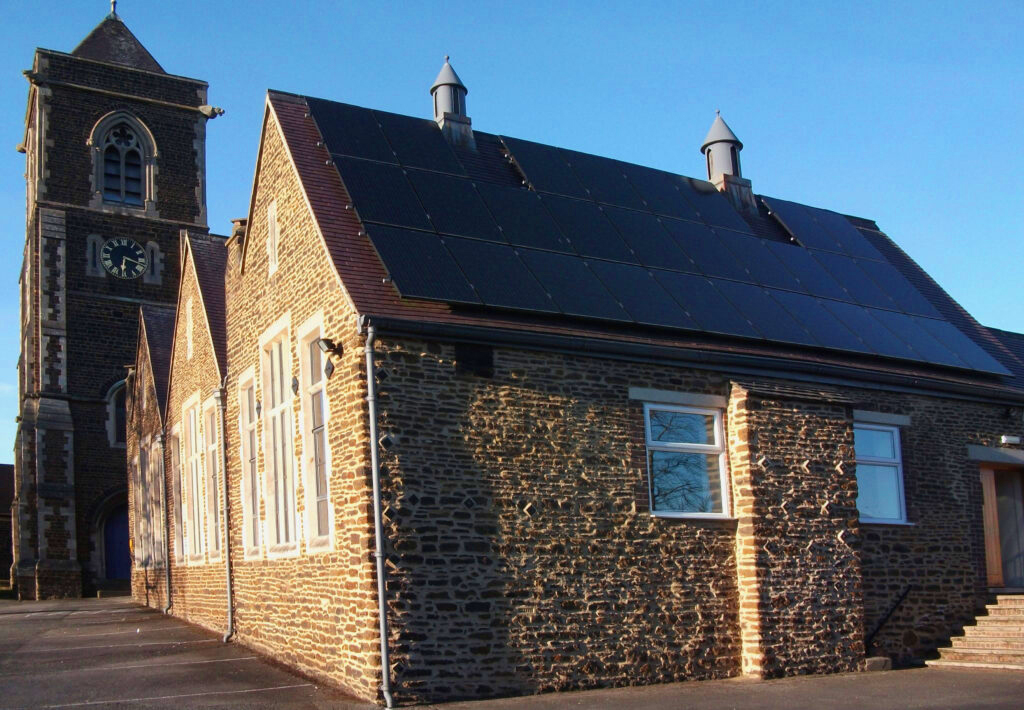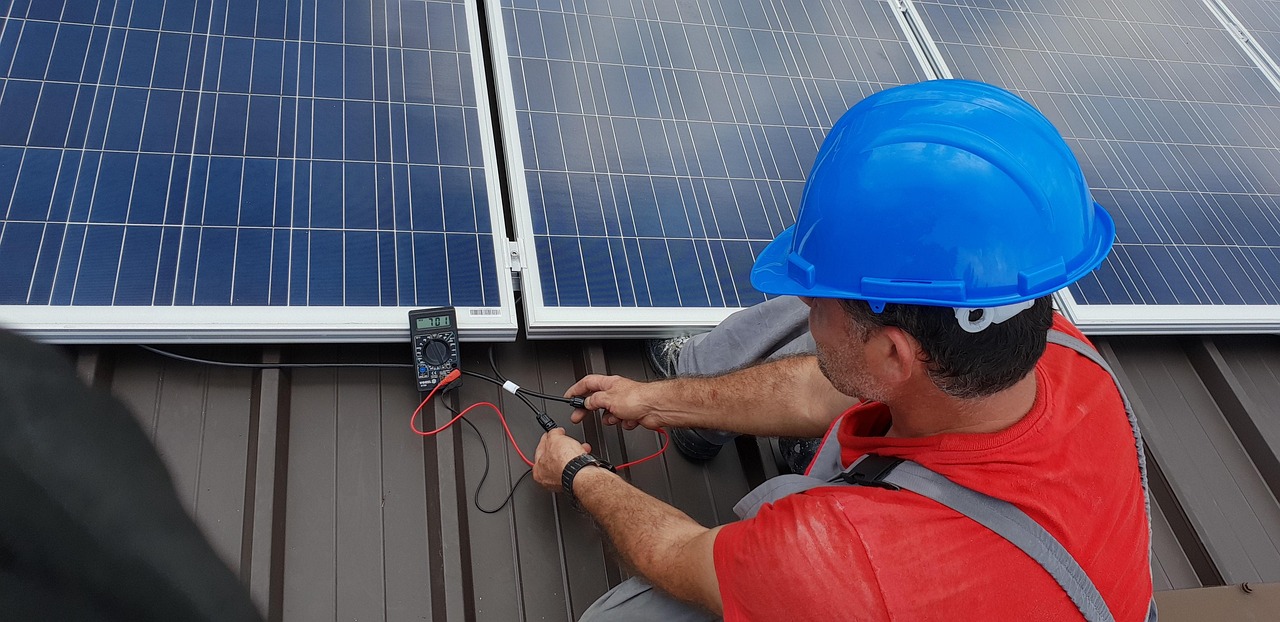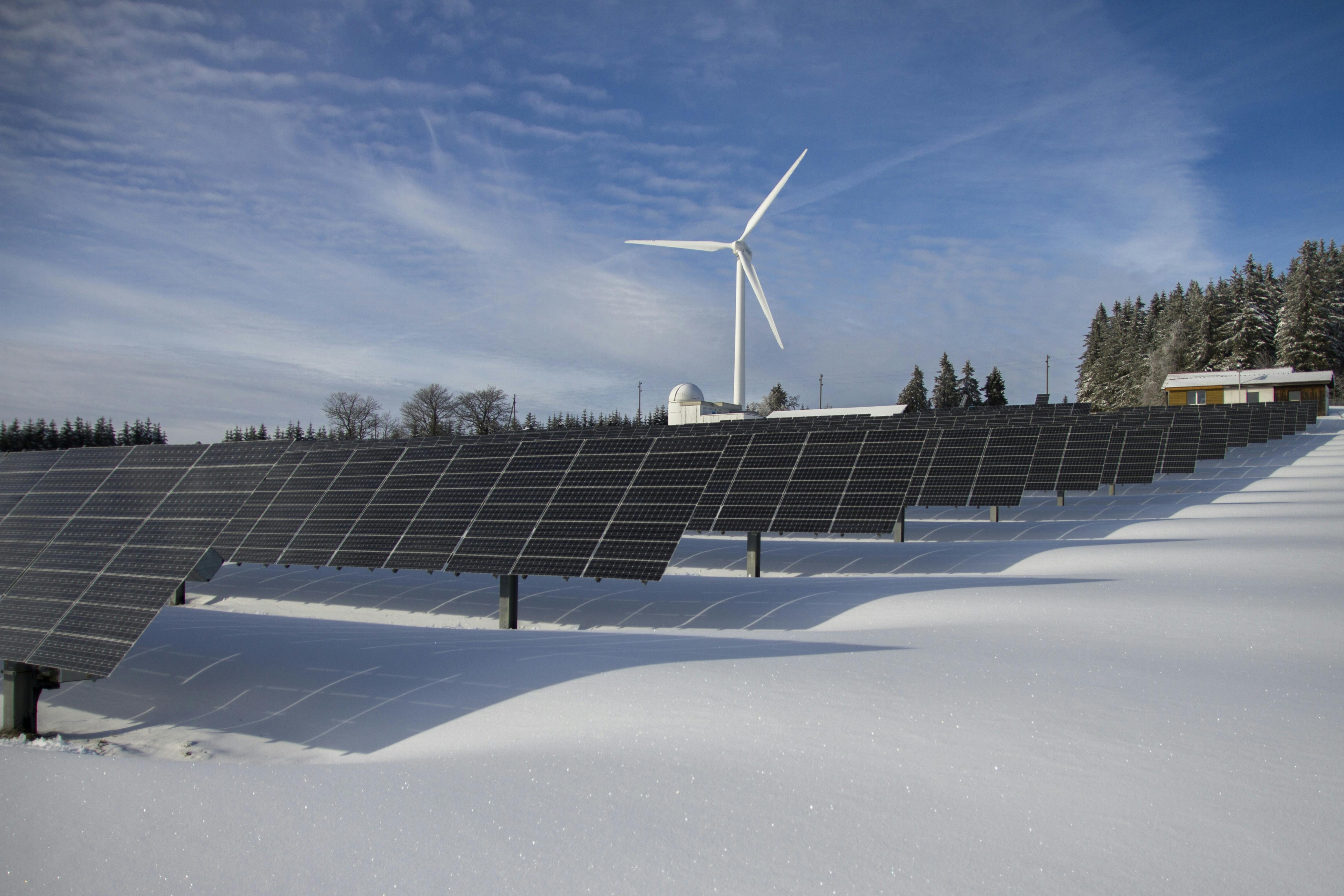Deciding When to Buy: Will Solar Panels Get Cheaper?
Are solar panels getting cheaper in the UK? Use our solar panel price calculator today to get an estimate for your home.

It is fair to say that the solar energy industry has seen significant advancements over the years, making it more accessible and cost-effective for homeowners. So, you might be wondering if now is the time to buy, or you’re questioning: will solar panels get cheaper in the future? In this guide, we will explore the evolution of the price of solar panels in the UK, the factors influencing costs, and whether we can expect future price reductions.
Plus, we will discuss why investing in solar panels remains a smart financial decision, and something you might want to consider if you haven’t already!
Key Takeaways:
Are Solar Panels Getting Cheaper?
Unfortunately, there is no straightforward answer to this question. Objectively, when looking at the data, we can deduce that solar panels are now cheaper than they were 10 years ago. But for the UK market, there have been notable fluctuations in price.
But, should you wait another 10 years before you decide to invest?
The Price of Solar Panels in the UK
If you’re debating the potential reduction in the price of solar panels, you first should have an idea of what they cost presently. We’ve made getting an estimated price for your property easy with our simple-to-use Solar Panel Calculator!
But, for a rough idea, you should note that the average UK home requires a 4kW solar panel system, which costs between £4,000 and £6,000. This price includes the supply and installation of solar panels, but not scaffolding or batteries.
So, how does this compare to previous prices?
Well, as we’ve mentioned, solar panels have decreased in price over the last decade. But while global solar panel costs have significantly decreased, the trajectory in the UK has been less consistent.
According to government data, the average price for a 4kW solar panel system in 2013 was £7,640. This means we have now seen a decrease of at least £1,640. But we must also take into account inflation. So, that £7,640 in 2013, is actually more like £10,727 by today’s economic standards, which is where we can see the much larger saving. The decrease of £1,640 is now closer to the £4,000 mark!
What Factors Impact Solar Panel Pricing?
Here are some of the factors potentially affecting the price of solar panels in the UK and its fluctuation. This may help you to get a better understanding of the market and make an informed decision on when to invest.
Advancements in Technology:
As solar technology advances, manufacturing processes become more efficient, which can lead to cost reductions over time. For example, improvements in photovoltaic (PV) cell efficiency and the introduction of new materials and production techniques can lower the cost per watt of solar power.
However, these advancements often require substantial initial investments in research, development, and the upgrading of manufacturing facilities. During periods when new technologies are being implemented, there can be temporary increases in prices. These costs are eventually offset as the new technologies become standard, but the initial phase can see price hikes.
Raw Material Availability:
The production of solar panels relies heavily on key raw materials such as silicon, silver, and aluminium. Silicon, used to make solar cells, is subject to price fluctuations based on mining and refinement capacity. Similarly, silver is used in conductive inks and pastes, and aluminium is essential for panel frames.
Limited availability of these materials, whether due to mining difficulties, geopolitical issues, or increased global demand, can drive up costs. Conversely, advancements in material science and alternative materials can mitigate some of these price pressures over time.
Market Conditions:
The solar sector is influenced by a complex web of economic factors. When the market is strong and profitability is high, prices tend to stabilise or even decrease due to economies of scale and competitive pressures. However, when the sector faces economic challenges, such as reduced subsidies, increased competition, or trade restrictions, prices can rise.
Trade policies and tariffs also play a significant role. For instance, tariffs on imported solar panels can increase costs, while subsidies and incentives for domestic production can help reduce prices.
COVID-19 Pandemic:
The pandemic had a profound impact on global supply chains, disrupting the production and transportation of solar panels. Factory shutdowns, labour shortages, and logistical challenges led to delays and increased costs for sourcing materials and components.
Additionally, the pandemic-induced economic uncertainty affected investment in new solar projects and manufacturing capacities, contributing to price volatility. Recovery from these disruptions has been gradual, and the long-term impacts on pricing are still being assessed.
Why You Should Invest in Solar Panels Now
So, there is no definitive answer as to whether solar panels will be cheaper to purchase in the future. But, that doesn’t mean there aren’t great savings to be made in the meantime. With energy prices on the rise, generating your own solar energy can lead to substantial savings. Here’s a closer look at how you can save money with solar panels, especially under the Smart Export Guarantee (SEG) scheme.
Savings Through Self-Consumption
The most immediate benefit of solar panels is the reduction in your electricity bills. By using the electricity generated by your solar panels, you can significantly cut down on the amount of electricity you need to purchase from the grid. The actual savings will depend on various factors including:
- System Size: Although more expensive larger systems generate more electricity, increasing potential savings.
- Electricity Usage: The more electricity you use, especially during daylight hours when your panels are most productive, the greater your savings.
- Daytime Availability: Being at home during the day to use the electricity as it’s generated maximises savings.
- Energy Efficiency: Combining solar panels with energy-efficient appliances and practices enhances your savings.
Earnings from Exporting Excess Energy
Under the SEG scheme, households in Great Britain are paid for the solar energy they export to the national grid. This scheme, which started in January 2020, compensates you for the electricity your system generates but that you don’t use yourself.
Here’s how it works:
- Export Payments: You receive payments for the surplus electricity your system generates and exports back to the grid. The rates can vary depending on your energy supplier and the terms of your SEG tariff.
- Maximising Export: If your energy consumption is lower during the day or you have a larger system, you’ll likely have more excess energy to export, thus increasing your SEG payments.
Learn more about how much you can expect to save with solar panels with our extensive guide.
Are Solar Panels Getting Cheaper: Final Thoughts
In summary, the cost of solar panels in the UK has fluctuated over the past decade due to factors like technological advancements, raw material availability, market conditions, and the COVID-19 pandemic. Although prices haven't consistently decreased, they are generally lower than ten years ago.
So, are solar panels getting cheaper? The answer is mixed. While there have been ups and downs, the long-term trend points to a decrease in prices, making now an excellent time to invest. With rising energy costs, the financial benefits of solar panels are substantial, you can save up to £410 annually on energy bills!
Ready to see how much you could save? Use our solar panel calculator to get an idea of the costs and explore our flexible financing options available at Make My Home Green. Start your journey to cleaner, more cost-effective energy today!
Ready to see what you can save?
Our solar calculator is 100% free to use. Enter your postcode below to get started.

Based on 400+ Trustpilot reviews






